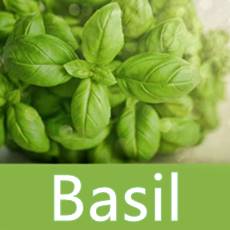Pumpkin seeds: Benefits, nutrition, uses
The healthy side of pumpkin seeds
Fact Checked
×All the content published in our website is fact checked to validate its accuracy.
Visit our guidelines web page to learn more about our strict processes regarding how we review our content's sources: reliable and reputable journals, media websites, universities, colleges, organizations, and professionals.
Our articles are based on scientific evidence, and the references are included in theirs footnotes, which are clickable links to sound scientific papers.
First published: 04. Dec.2024
Overview
Tiny but packed with nutrients and plant-based bioactive compounds, pumpkin seeds have many benefits for your health. This article looks at the uses and properties of pumpkin seeds, and how to prepare them at home and add them to your diet.
References and Further Reading
(1) Shaban A, Sahu RP., (2017). Pumpkin Seed Oil: An Alternative Medicine. International Journal of Pharmacognosy and Phytochemical Research. 2017 ;9(2):11. DOI: 10.25258/phyto.v9i2.8066. PMID: 34924730
(2) Nomikos T, Gioti K, Tsoukala M, Tenta R., (2021). Pumpkin Seed Extracts Inhibit Proliferation and Induce Autophagy in PC-3 Androgen Insensitive Prostate Cancer Cells. J Med Food. 2021 Oct;24(10):1076-1082. doi: 10.1089/jmf.2020.0200. Epub 2021 May 11. PMID: 33978471
(3) Joachim M. Dotto, James S. Chacha, (2020). The potential of pumpkin seeds as a functional food ingredient: A review. Scientific African, Vol 10, e00575, ISSN 2468-2276, https://doi.org/10.1016/j.sciaf.2020.e00575
(4) Abdel-Hakeem, S.S., Alnasser, S.M., Meshal, A. et al., (2024). Pumpkin seed oil: unveiling its potential in controlling inflammation and pathogenicity during experimental trichinellosis. BMC Vet Res 20, 419 (2024). https://doi.org/10.1186/s12917-024-04241-2
(5) Majid, A.K, Ahmed, Z., and Khan, R., (2020). Effect of pumpkin seed oil on cholesterol fractions and systolic/diastolic blood pressure. Food Science and Technology, 40(3), 769–777. https://doi.org/10.1590/fst.03720
(6) Hong H, Kim CS, Maeng S., (2009). Effects of pumpkin seed oil and saw palmetto oil in Korean men with symptomatic benign prostatic hyperplasia. Nutr Res Pract. 2009 Winter;3(4):323-327. https://doi.org/10.4162/nrp.2009.3.4.323
(7) Arunima Singh, Vivek Kumar, (2024). Pumpkin seeds as nutraceutical and functional food ingredient for future: A review,. Grain & Oil Science and Technology, Vol 7:1, pp 12-29, ISSN 2590-2598, https://doi.org/10.1016/j.gaost.2023.12.002.
(8) USDA, (2019). Organic Raw Shelled Pumpkin Seed. Nutritional values. Accessed 03.Dec.2024
(9) Ibrahim, Abeer and Mohammed Salih, Tara and Ibrahimc, Shifaa and Al-Noor, T., (2018). Facial Acne Therapy by Using Pumpkin Seed Oil with Its Physicochemical Properties. 23. 10.15192/PSCP.ASR.2018.23.1.3947
(10) Bardaa S, Ben Halima N, Aloui F, Ben Mansour R, Jabeur H, Bouaziz M, Sahnoun Z., (2016). Oil from pumpkin (Cucurbita pepo L.) seeds: evaluation of its functional properties on wound healing in rats. Lipids Health Dis. 2016 Apr 11;15:73. doi: 10.1186/s12944-016-0237-0. PMID: 27068642
(11) Nishimura, Mie; Ohkawara, Tatsuya; Sato, Hiroji; Takeda, Hiroshi; Nishihira, Jun, (2014). Pumpkin Seed Oil Extracted From Cucurbita maxima Improves Urinary Disorder in Human Overactive Bladder. J Tradit Complement Med. 2014 Jan;4(1):72-4. doi: 10.4103/2225-4110.124355. PMID: 24872936
(12) Shemi George and P Nazni, (2012). Antidepressive Activity of Processed Pumpkin (Cucurbita maxima) Seeds on Rats. International Journal of Pharma Medicine and Biological Sciences, Vol. 1, No. 2, pp. 225-231, October 2012
(13) Cho YH, Lee SY, Jeong DW, Choi EJ, Kim YJ, Lee JG, Yi YH, Cha HS., (2014). Effect of pumpkin seed oil on hair growth in men with androgenetic alopecia: a randomized, double-blind, placebo-controlled trial.Evid Based Complement Alternat Med. 2014;2014:549721. doi: 10.1155/2014/549721. Epub 2014 Apr 23. PMID: 24864154
(14) Friederich M, Theurer C, Schiebel-Schlosser, (2020). G Prosta Fink Forte capsules in the treatment of benign prostatic hyperplasia. Multicentric surveillance study in 2245 patients. Forsch Komplementarmed Klass Naturheilkd 2000; (7): 200–4
(15) Tasya Z, Amiruddin R, Syam A, Thamrin Y., (2024). Pumpkin Seed Intervention to Control Diabetes Mellitus: A Systematic Review. Open Access Maced J Med Sci [Internet]. 2022 Jun. 12 [cited 2024 Dec. 4];10(F):535-40.
(16) Montesano D, Blasi F, Simonetti MS, Santini A, Cossignani L., (2018). Chemical and Nutritional Characterization of Seed Oil from Cucurbita maxima L. (var. Berrettina) Pumpkin. Foods. 2018 Mar 1;7(3):30. doi: 10.3390/foods7030030. PMID: 29494522
About this Article
Pumpkin seeds: Benefits, nutrition, uses, A. Whittall
©2024 Fit-and-Well.com. First Published: 04.Dec.2024. Update scheduled for 04.Dec.2027. https://www.fit-and-well.com/diet-food/pumpkin-seeds.html
Tags: pumpkin seeds, acne, baldness, BPH, blood pressure, depression, diabetes, wounds, incontinence, phytochemicals, phytosterols




